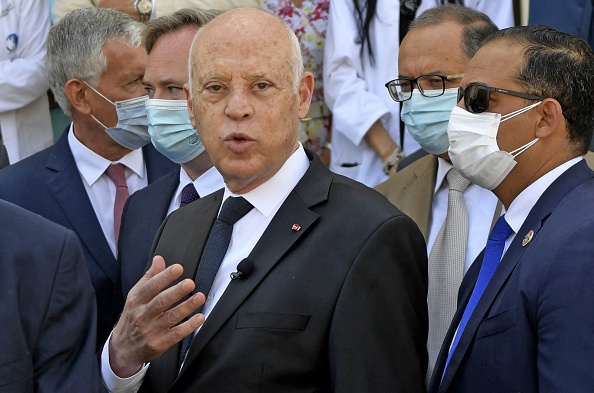Tunis – Italy’s top diplomat Luigi Di Maio discussed clandestine migration with Tunisian President Kais Saied on Tuesday, in his first visit to the North African country since the president’s July 25 power grab.
The foreign minister praised Tunisian efforts to stem the flow of irregular migrants, according to a statement on the presidency’s website.
Saied pointed out “the limits of traditional policies in managing the phenomenon of clandestine migration”.
He called for new strategies to encourage “regular migration according to mechanisms that respect the rights of migrants”.
ALSO READ | Cash-strapped Tunisia to borrow $7bn more in 2022
Italy is a key entry point to the European Union for migrants from across Africa, with tens of thousands boarding rickety boats each year from Libyan or Tunisian shores in search of better lives in Europe.
In May, Italy’s Interior Minister Luciana Lamorgese visited Tunisia and announced a deal offering the country economic aid in exchange for extra efforts to stop migrants reaching Italy.
Several Tunisian civil society groups marked Di Maio’s visit with a press conference to demand answers over the death of a Tunisian migrant who had arrived in Sicily in October.
Wissem Ben Abdellatif, 26, died after being detained in a centre for migrants to be repatriated.
ALSO READ | Tunisians rescue 48 illegal migrants at sea
“The living conditions in these centres respect neither human dignity nor basic hygiene standards, especially during the pandemic,” said Romdhane Ben Amor of the Tunisian Forum for Economic and Social Rights (FTDES).
He said Tunisia had “turned into the coastguard”, stopping some 26 000 migrants reaching Italy in 2021.
Ahmed Mssedi, a member of Avocats Sans Frontieres (Lawyers without Borders), accused Italian authorities of “forcing migrants to sign documents they don’t understand”.
Italian authorities have said some 55 000 irregular migrants reached Italy between January and the start of November, compared to fewer than 30 000 last year, with Tunisian nationals making up the majority of those who set out from Tunisia.
Follow African Insider on Facebook, Twitter and Instagram
Source: AFP
Picture: Getty Images
For more African news, visit Africaninsider.com


